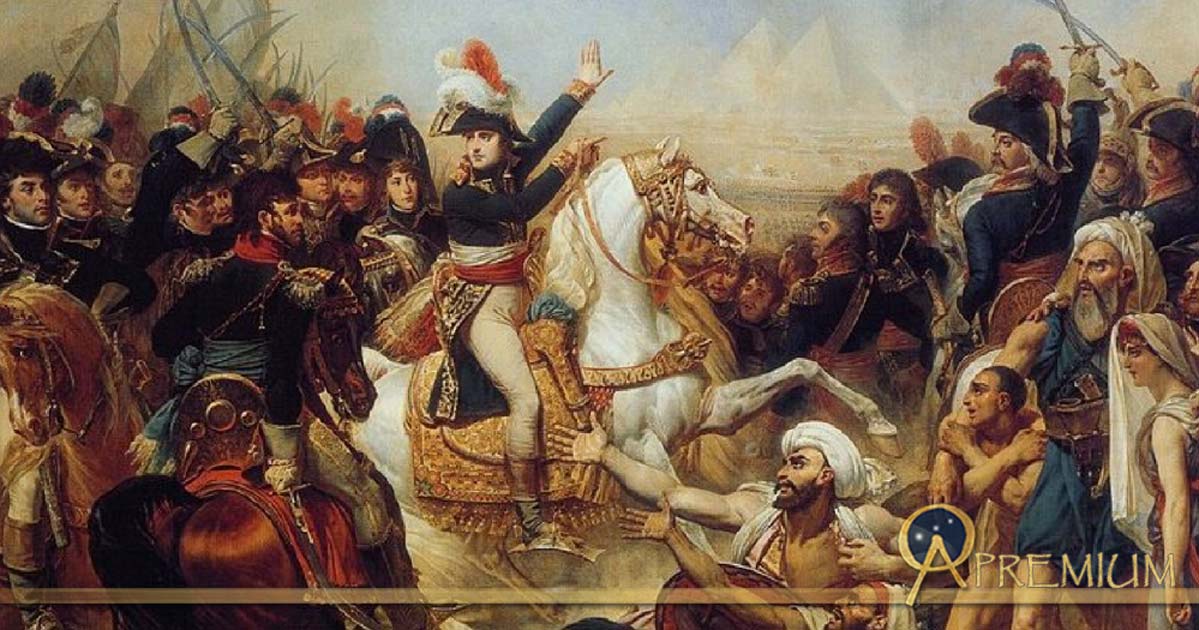The Napoleonic Expedition to Egypt: Hasty End of a Powerful Dream – Part II
Even though Napoleon Bonaparte had tasted a series of successes within weeks of setting foot in Egypt, including an important victory against the dreaded Mamluks, his plan to conquer the entire country was thwarted often by an English naval genius, Rear Admiral Horatio Nelson, who seemed to follow him like a shadow. Soon, with his troops in low spirits due to the constant battles and the punishing weather, defeat stared the French in the face. Napoleon did the unthinkable – he quietly left for France. Tipu Sultan, his friend in India, died battling the British a few days before the Commander decided to withdraw from the Egyptian Expedition.

Bonaparte Before the Sphinx, (ca. 1868) by Jean-Léon Gérôme, Hearst Castle. (Public Domain)
Finally on Egyptian Shores!
Napoleon Bonaparte made the most of his success in eluding the British Royal Navy for 13 days by disembarking in Alexandria on 1 July 1798. The landing spot, though unplanned, was symbolic, because Alexandria was regarded as one of the most significant hubs of Hellenistic civilization and had functioned as the Egyptian capital of the Ptolemy, Roman, and Byzantine empires for nearly a thousand years until the Muslim conquest in 641 AD. Ever silver-tongued and in the fashion of a statesman, Napoleon addressed his troops from aboard his ship L’Orient before setting foot on Egyptian soil. He exhorted them with these invigorating words that led to the capture of Alexandria: “The peoples we will be living alongside are Muslims; their first article of faith is ‘There is no other god but God, and Mahomet is his prophet’. Do not contradict them; treat them as you treated the Jews, the Italians; respect their muftis and their imams, as you respected their rabbis and bishops. Have the same tolerance for the ceremonies prescribed by the Quran, for their mosques, as you had for the convents, for the synagogues, for the religion of Moses and that of Jesus Christ. The Roman legions used to protect all religions. You will here find different customs to those of Europe, you must get accustomed to them. The people among whom we are going treat women differently to us; but in every country whoever violates one is a monster. Pillaging only enriches a small number of men; it dishonors us, it destroys our resources; it makes enemies of the people who it is in our interest to have as our friends.
Like this Preview and want to read on? You can! JOIN US THERE ( with easy, instant access ) and see what you’re missing!! All Premium articles are available in full, with immediate access.
For the price of a cup of coffee, you get this and all the other great benefits at Ancient Origins Premium. And - each time you support AO Premium, you support independent thought and writing.
Independent researcher and playwright Anand Balaji, is an Ancient Origins guest writer and author of Sands of Amarna: End of Akhenaten
Top Image: Top Image: Napoleon at the Battle of the Pyramids, 21 July 1798, oil on canvas, 1810. By Antoine-Jean Gros; design by Anand Balaji (Public Domain); Deriv.
By Anand Balaji

















